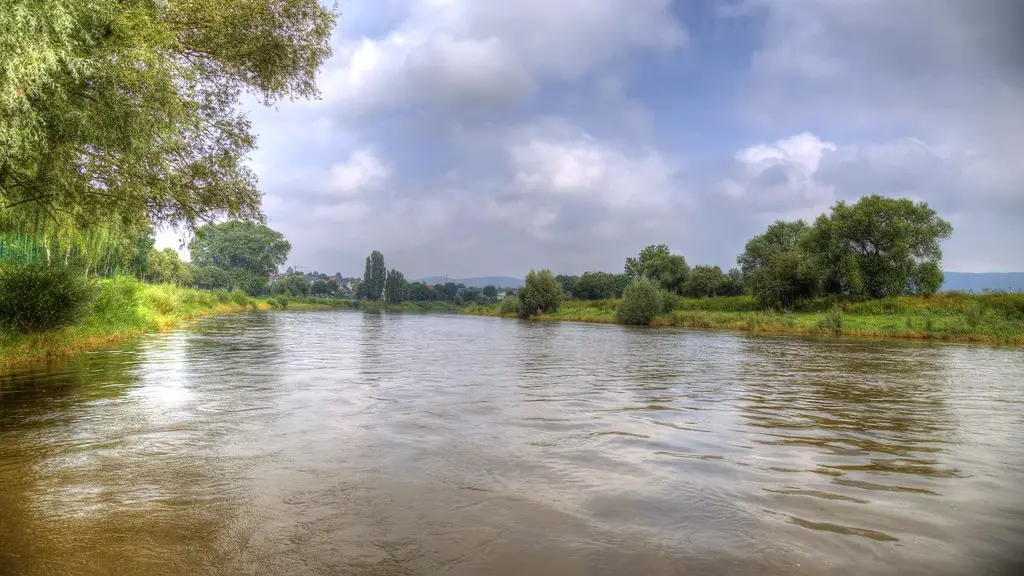Economic Impact
Naturally, if the Mississippi were to completely dry up, it would pose serious economic damages to many sectors in the nation and even around the world. For example, businesses that rely on the power of the river, such as river transport and energy companies, would suffer greatly as a result of the Mississippi ceasing to exist. The destruction of the river would also devastate the tourism industry, impacting hotels, restaurants, stores, and other establishments that depend on the river to attract visitors. Another economic consideration is the destruction of crop production. Because the Mississippi doesn’t just act as a transportation hub, but rather a nutrient source and a main source of water for the crop layout of the Great Plains. The destruction of the River would cause the lack of irrigation, misfortunate to both the nation and the world’s food production.
Socio Cultural Effects
The socio-cultural impacts of the Mississippi River drying up are quite devastating. With the destruction of the river would come the destruction of the culture and traditions associated with the river. Many regions throughout the US have built their culture around the Mississippi, and many of them depend on it to make their living. This includes the fishing and transportation industries, many of which rely on the river to perform their daily activities. Furthermore, the destruction of the river would cause the displacement of many Native American tribes that live in the region, and it would certainly bring the destruction of the world-famous Mississippi delta region, which has long been recognized as a symbol of the American culture.
Environmental Impacts
The greatest impact of the Mississippi River drying up is undoubtedly the effect on biodiversity. The Mississippi River supports a variety of aquatic life, and many species rely on the river system for their food and habitat. In addition, the river’s condition is also an important factor for controlling pollutants, as the current of the river is the main method for purifying the water. Therefore, if the Mississippi were to dry up, it would likely most affect the health of ecosystems and species throughout the US.
Global Effects
The destruction of the Mississippi would also have far-reaching global repercussions. The Mississippi is an important artery for the transportation of goods across the US and, indeed, the world. The destruction of the river would undoubtedly have a devastating impact on the shipping and transportation industries, which, in turn, would affect global markets and economies. In addition, the destruction of the river would have a huge impact on water bodies all across the nation, as currently, water bodies such as rivers, lakes, and streams are all connected or linked through the Mississippi river.
Ecological Changes
The ecological changes should also be considered if the Mississippi were to dry up. Firstly, the destruction of the river would cause an influx of sediment and pollutants into other rivers and tributaries, in and around the Mississippi, potentially leading to water contamination and eutrophication. Another ecological change is the potential for the destruction of natural habitats and wildlife due to a decrease in water flow and an increase of sedimentation. This, in turn, would cause the destruction of the vegetation and wildlife in and around the River, causing an even greater destruction of aquatic life.
Regional Effects
The destruction of the Mississippi River would undoubtedly lead to a devastating blow to the economy of the region, as the river is an essential source of transportation, recreation, and food. In addition, many of the states in the Midwest depend heavily on the River for their agricultural production. This is especially true for states such as Iowa, Arkansas, and Missouri, as the Mississippi is their main source of water and nutrients for their crops. Furthermore, it is likely that the destruction of the river would lead to an increase in poverty and unemployment in the region, as many industries and livelihoods would be affected by the destruction of the river.
Political Implications
The destruction of the Mississippi would also have serious political implications. The disaster would likely bring about large-scale regional migrations, as many of the people in the region have no other source of income or livelihood. This could potentially lead to unrest and political conflict in the region, as governments and leaders in the area struggle to contain and manage the devastation. Additionally, the destruction of the Mississippi could bring about a crisis in water availability, as many of the states along the river rely on it for their water supply. This could further increase tensions between states, further exacerbating the political crisis in the region.
Infrastructure Damages
Lastly, the destruction of the Mississippi would also cause widespread infrastructure damage. The river banks are integral to protecting coastal regions from floods and other damaging weather events. Thus, the destruction of the river would cause coastal cities and communities to become vulnerable to damages caused by storms, hurricanes, and other natural disasters. In addition, the destruction of the river would also cause massive damages to roads, bridges, and other infrastructure, as these have all been built in an attempt to make the use of the River easier and more manageable.


